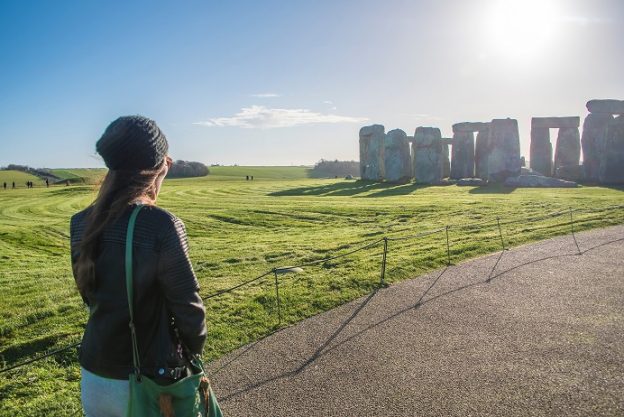I recently graduated as a student at the University of Exeter’s Penryn Campus, in the second cohort of Exeter’s MA in International Heritage Management and Consultancy. I was first drawn to the MA course because of the variety of learning experiences it had to offer. The opportunity to follow my existing interests while exploring new and current thinking in the heritage sector was invaluable. The course was both vocational and academic, which was exactly what I was looking for, having just completed my undergraduate studies in English at the Streatham campus. I wanted to gain more workplace-specific knowledge and this degree offered a great variety of both topics and learning methods. While other heritage MAs specialise in only one area, this programme enabled me to research anything and everything from Irish peat bogs or metal detecting, to the British Museum’s recent exhibitions.
One of the most important skills I gained during the MA was project management and the ability to grapple with big issues in heritage. Adapting large projects like the field course and dissertation to home-based learning was challenging, but it certainly tested our research skills and adaptability. Lots of heritage research is site-based and so the lockdowns forced us to find new ways of working. Developing innovative approaches to work is a skill that we honed throughout the MA, as balancing competing deadlines and incorporating new research into our learning was very much encouraged throughout. The skills and experiences I gained prepared me for a wide variety of future careers, from local government to entering academia or heritage education. A network of professional bodies and partners have helped shape the course, and this really shows in the programme. Heritage and Environmental Change was a module that left a big impact on me, and has made me really mindful about considering heritage in context of the climate crisis. Exeter has an amazing heritage team who are at the cutting edge of research and engagement in this area. This meant that everything was very fresh and exciting. The course is very collaborative and interdisciplinary, and has elements of geography, history, literature, anthropology and politics, to name just a few areas that kept us on our toes.
The experience I found the most useful was my work-based placement with the Area of Outstanding Natural Beauty Team at Cornwall Council, one of the University’s partners. I had the opportunity to present at a conference and network with professionals alongside my studies, which was a great experience. If I were to give advice to other students on this course, it would be to not be afraid to take opportunities that are presented to you — whether it’s presenting at an event or becoming a research assistant. The work-based placement allowed us to pursue an area of particular interest, or just to try something new. I wanted to gain experience in natural heritage and community engagement, so this was a great fit. Some of my peers with other placement providers designed exhibitions, while another created a biodiversity report for a local estate. Reflection on the placement was built into our assessment, and this really helped me pinpoint the things I’m good at and the areas I’m keen to improve in the future.


Images, from left: Tintagel, Cornwall; Stonehenge, Wiltshire.
Another big attraction of this MA was the opportunity to go out in the field. While our biggest field trip to Vancouver was sadly cancelled due to the Covid-19 pandemic, we had still been able to experience a variety of UK field courses in the academic year, such as to St Michael’s Mount and Stonehenge. My stand-out moment was standing in the inner circle of Stonehenge just after dawn. Such opportunities are rare, and looking back it feels even more special than it was in March, just before the pandemic took off in the UK. It was such a beautiful frosty morning that we didn’t mind getting out of bed at 5am.
I have recently started a new job at the National Lottery Heritage Fund as a Business Delivery Assistant in the Central Team. It matches up very well with the knowledge and skills I gained during my MA – from knowledge of the grants application process to managing a portfolio of work. I’m really enjoying getting to know everyone at the Fund, and gaining more insight into a diverse organisation that is the largest dedicated grant funder of the UK’s heritage. Had I not taken the leap and started the Masters course, I would not have felt confident enough to apply for this role. I would definitely recommend this course to others wishing to further their understanding of heritage and the role it plays in the UK and societies around the world.

